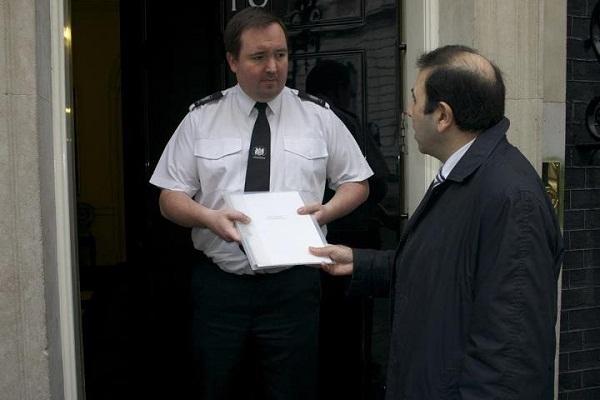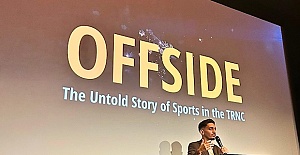So far, over 5,500 EU-citizens have participated in one of the broadest web based consultations in the EU's history on citizens' rights and the future of Europe – the latest Commission figures released today show. On 9 May, Europe Day, the European Commission called on citizens all over the European Union to help set the policy agenda for the years to come and shape the future of Europe (IP/12/461). Until 9 September, all Europeans can share their views on questions such as "How would you like the European Union to develop in the near future? In what kind of European Union would you like to live in 2020?"
As Europe is facing major challenges, not least as a result of the financial and sovereign debt crisis, political debate is increasingly becoming a debate about the near and long term future of Europe. At the last European Council in June, leaders discussed about the need to take Economic and Monetary Union (EMU) to a "new stage". However, any further integration in the economic and fiscal field needs to be legitimate in the eyes of the people of Europe. This is why the report of the 'four Presidents' (the President of the European Council, the President of the European Commission, the President of the Eurogroup and the President of the European Central Bank), published on 26 June, specifically states: "Overall, closer EMU integration will require a stronger democratic basis and broad support from citizens. For this reason, it is essential that already the process towards realising this vision is based on wide consultation and participation. Integration and legitimacy have to advance in parallel." Following a proposal from the Commission, 2013 is set to become the European Year of Citizens (IP/11/959). The European Commission wants to seize this occasion to take citizens on board when shaping the Union of tomorrow and listen to their visions for the future of Europe.
"The on-going crisis has triggered a very necessary public debate about where Europe is heading. To make Economic and Monetary Union truly irreversible and to regain trust and confidence, it is important to give citizens and companies a perspective on what Europe will look like in 2020. I am glad to see that in this context, proposals for a 'Political Union', a 'European Federation' or even a 'United States of Europe' have become again a subject of debate”, said Vice-President Viviane Reding, the EU’s Commissioner for Justice, Fundamental Rights and Citizenship. “The Commission’s public consultation shows a strong interest in this debate. It is notably refreshing to see that most of the responses are coming from young Europeans. It is my firm conviction that we need more Europe, not less, to emerge from the crisis. And for this, we need our citizens on boards. Europe is after all about their rights, their concerns and their future. It is therefore the citizens that should guide us on our journey to a stronger, more integrated Europe."
The Commission's consultation 'Your rights, your future' also asks the public about the very practical obstacles citizens face in daily life, when exercising their rights as EU citizens or when wanting to rely on fundamental rights enshrined in EU law. The Commission wants to learn about any difficulties Europeans encounter, be it when travelling in Europe, when moving across borders, when voting or standing as a candidate in elections, or when shopping online. The input received will feed directly into the Commission's policy agenda for the coming years and will form the basis for the 2013 EU Citizenship Report, to be presented on 9 May 2013, next year's Europe Day.
Just three months after the kick off on 9 May, over 5,000 people have taken part in the on-line consultation and answered the online questionnaire. This includes citizens from all Member States (11,3 % of respondents are French, 10,5 % Italian, 9 % Spanish, 8,9 % German and 6,1 % are British – see how your country is faring in the Annex).
The short questionnaire can easily be completed online and only takes ten minutes of your time. The consultation will be open until 9 September:
http://ec.europa.eu/your-rights-your-future
Thanks to EU citizenship – which does not replace national citizenship but complements it – all nationals of the 27 EU Member States have a set of additional rights as EU citizens. These include the right to vote and stand in local and European elections in the EU country they live in, the right to consular protection abroad under the same conditions as nationals and the right to petition the European Parliament, complain to the European Ombudsman, or to take part in a European Citizens' Initiative. In addition, everybody in Europe can rely on the fundamental rights set out in the EU Charter of Fundamental Rights whenever EU law is applied by the EU institutions or implemented by national authorities.
The EU Citizenship Report 2010 (see IP/10/1390 and MEMO/10/525) outlined 25 concrete actions to remove the remaining obstacles to EU citizens exercising their right to free movement in the EU. One of these is to strengthen people's awareness of their EU citizenship status, their rights and what these rights mean in their daily lives. The Commission therefore proposed to designate 2013 as the European Year of Citizens and to organise targeted events on EU citizenship and citizen-related policies throughout the Year.
During the European Year of Citizens in 2013, the Commission will publish a second EU citizenship report, to present further targeted initiatives to remove the remaining obstacles that hinder citizens from fully enjoying their rights as EU citizens.


 CTCA UK Condemns the Political Forcing Out of Afzal Khan MP for Engaging with Turkish Cypriots
CTCA UK Condemns the Political Forcing Out of Afzal Khan MP for Engaging with Turkish Cypriots Tatar: “Reaction to MP’s TRNC visit is yet another stark example of the Greek Cypriot leadership’s primitive and domineering mentality”
Tatar: “Reaction to MP’s TRNC visit is yet another stark example of the Greek Cypriot leadership’s primitive and domineering mentality”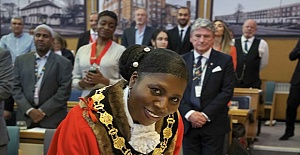 Margaret Greer has been sworn in as the new Mayor of Enfield
Margaret Greer has been sworn in as the new Mayor of Enfield Prime Minister Keir Starmer's 2025 Easter message
Prime Minister Keir Starmer's 2025 Easter message Team Enfield ranks fifteenth the in London Youth Games
Team Enfield ranks fifteenth the in London Youth Games Parking enforcement boosted with more officers on patrol in Enfield
Parking enforcement boosted with more officers on patrol in Enfield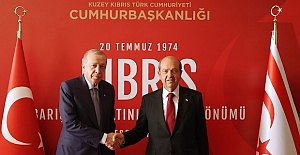 Ersin Tatar meets with President Erdoğan
Ersin Tatar meets with President Erdoğan President Ersin Tatar Holds Ministerial-Level Meeting with UK Minister for Europe
President Ersin Tatar Holds Ministerial-Level Meeting with UK Minister for Europe UEFA Europa League and UEFA Conference League draws to be combined into one single show
UEFA Europa League and UEFA Conference League draws to be combined into one single show EuroLeague schedule for 2025-26 season announced
EuroLeague schedule for 2025-26 season announced Zeynep Sonmez becomes first Turkish tennis player to reach third round at Wimbledon
Zeynep Sonmez becomes first Turkish tennis player to reach third round at Wimbledon European champions Arsenal Women will play all of their league matches at the Emirates Stadium
European champions Arsenal Women will play all of their league matches at the Emirates Stadium Enfield Labour welcomes the completion of A10 average speed cameras extension.
Enfield Labour welcomes the completion of A10 average speed cameras extension. TfL opens 2025 grants for community groups to encourage more walking, cycling and active travel in the capital
TfL opens 2025 grants for community groups to encourage more walking, cycling and active travel in the capital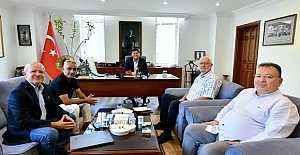 Fethiye Launches International Digital Tourism Campaign with UK-Based Publisher
Fethiye Launches International Digital Tourism Campaign with UK-Based Publisher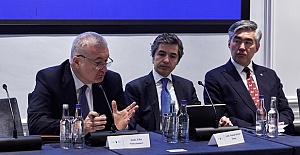 Highlights from the 3rd Trans-Caspian Connectivity Conference in London
Highlights from the 3rd Trans-Caspian Connectivity Conference in London





